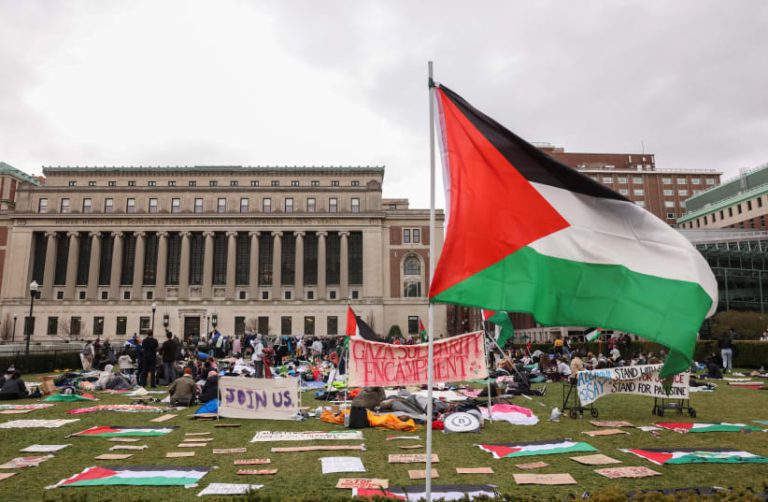
Palestine Protests at Columbia University In April 2024, Columbia University in New York City became a focal point for nation. Sparked by the ongoing Israeli-Palestinian conflict, particularly a recent escalation, students staged a series of demonstrations culminating in a tense standoff with university administration and law enforcement.
The Spark:
The immediate cause for the protests was a surge in violence in the Gaza Strip. News of civilian casualties, along with broader concerns about the Israeli-Palestinian conflict, ignited a passionate response from Columbia’s student body. Students began with peaceful demonstrations, chanting slogans in support of Palestine and demanding action from the university. This quickly escalated to the establishment of a tent encampment on campus, a symbol of sustained protest.
A core demand of the protestors was university divestment from companies seen as profiting from the Israeli occupation of Palestinian territories. This issue lies at the heart of the Boycott, Divestment, Sanctions (BDS) movement, which aims to pressure Israel through economic means.
As the protests continued, tensions rose. The university administration, facing pressure to maintain order, issued ultimatums for the protestors to disperse. However, students remained resolute, leading to a police raid on the occupied building. Dozens of protestors were arrested, sparking outrage and accusations of heavy-handed tactics.
The Debate Heats Up about Palestine Protests
The Columbia protests became a national flashpoint. Supporters of the protests decried what they saw as an attempt to silence dissent and curtail free speech. Opponents argued that the protests crossed a line into antisemitism and that the university had a responsibility to protect all students. The immediate demonstrations ended with the arrests, but the underlying issues remain unresolved. The Israeli-Palestinian conflict continues, and the debate over BDS on American campuses persists. Columbia faces lawsuits from students on both sides of the issue, highlighting the deep divisions surrounding this complex topic.
The pro-Palestine protests at Columbia were a microcosm of a much larger conversation. These events raise important questions about freedom of expression, the role of universities in social activism, and the path towards a peaceful